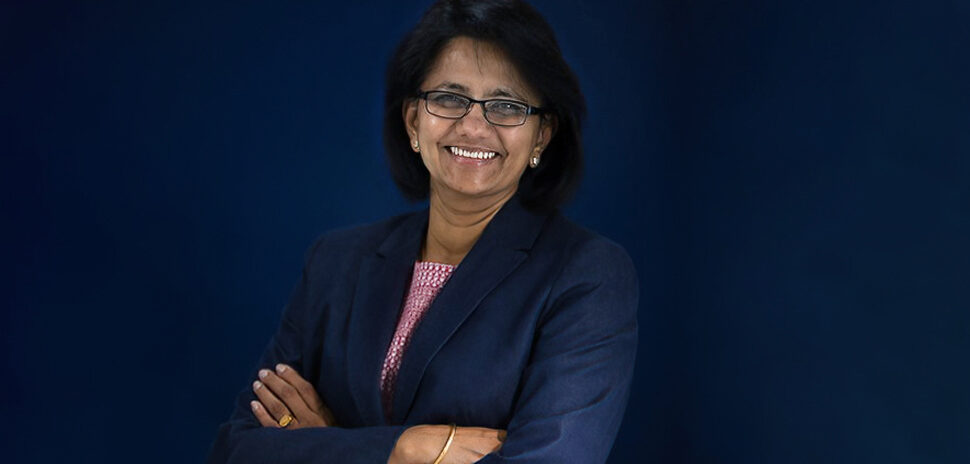Accenture released its Technology Vision 2018 report covering five major trends unfolding over the next three years: citizen AI, extended reality, data veracity, frictionless business, and internet of thinking.
The global professional services firm, with an office in Dallas, sees these trends as part of what the report called “a unique technological transformation” in that the changes are part of a two-way street where people are using products and services and also feeding information back to those companies. The end result is a new corporate social contract based around technology interactions between businesses, consumers, and other institutions such as governments. An Accenture survey found 84 percent of global respondents said companies are using technology to seamlessly integrate into the “fabric of how people live today.”
The survey behind the report included 6,381 international business and IT executives including at least 100 respondents from each of the 10 participating U.S. metro areas including Dallas, Atlanta, Boston, Chicago, Houston, Los Angeles, Minneapolis/St. Paul, New York City, San Francisco, and Washington D.C.
Here’s a deeper dive into each of the trends cover in the report:
CITIZEN AI
Artificial intelligence is rapidly becoming more integrated into business, society, and culture with applications as diverse as driving business decision through predictive analytics to self-driving cars to customer service chatbots and even personal digital assistants accessed via smartphones or in-home devices.
Accenture’s survey found 66 percent of global respondents planned on investing in AI over the next year, topping a list of emerging technologies that included the Internet of Things, robotics, blockchain, and virtual reality.
Dallas execs named AI as the top emerging tech for investment.
Dallas execs also named AI as the top emerging tech for investment at 72 percent, and 86 percent reported that AI will work next to people as a co-worker, collaborator, and trusted advisor in their companies within the next two years. Even though Dallas execs expect AI to become an integrated part of their business, not quite as many at 77 percent think AI-based decisions will impact every person daily within the next three years.
One area of concern around AI is the technology outpacing businesses’ rate of adoption. Seventy nine percent of Dallas respondents agreed with that idea and 78 percent also said organizations aren’t prepared to face societal and liability issues around explaining AI-based decisions and actions.
EXTENDED REALITY
Extended reality is using virtual and augmented realities to create experiences such as product demos for items too large to transport to a prospect or offer virtual tours of home and other real estate properties without the potential buyer having to actually visit the building. Ikea is a brand using extended reality with a virtual kitchen where consumers can flip virtual pancakes.
The difference between VR and AR is full virtual reality requires more hardware such as a headset, and at the highest end of the tech that headset is tethered to a powerful computer capable of creating the virtual world. AR can be deployed by simply looking at a smartphone, with the viral hit mobile game Pokemon Go the best-known example.
Extended reality is important to 80 percent of global respondents.
Accenture’s survey found extended reality is important to 80 percent of global respondents for the purpose of closing the gap of physical distance when engaging with consumers and even company employees with 78 percent of Dallas respondents agreeing and the same number believing it is important for their companies to be pioneers in extended reality.
In terms of how extended reality will be most relevant over the next two years, Dallas execs replied: customer service (58 percent), data visualization (52 percent), customer experiences (50 percent), brand promotion (49 percent), employee collaboration (44 percent), and logistics management 43 percent.
DATA VERACITY
Trust is the basis of data veracity. Unverified data leaves businesses vulnerable to inaccurate or manipulated information that have deleterious impact on business decisions and other actions. Data veracity has three key components according to the Accenture report: Provenance, in other words, the origin of the data; the context around the data use; and the integrity of the data around its security and maintenance.
Trust is the basis of data veracity.
Data veracity is a challenge during these days of “big data.” A study cited by the report found an estimated 97 percent of business decisions are made using data the corporate decision makers considered of unacceptable quality.
The solution is for companies to develop data intelligence practices through determining acceptable risks and with a mandate to maximize veracity and minimize incentives for data manipulation.
FRICTIONLESS BUSINESS
The concept behind frictionless business is companies compete via strategic partnerships and legacy business systems don’t allow for technology-based partnerships to easily and rapidly expand. The solution to this challenge is microservices architectures, blockchain technology, and smart contracts.
Instead of consisting of a single piece of technology, microservices is an approach to architecture that combines tools such as APIs (application programming interfaces) and cloud computing to turn complex applications into simpler discrete services. Microservices benefits business through scalability and reliability as well as providing a basis that eases technological partnerships with other businesses.
93 percent of Dallas execs expect to integrate blockchain into their organizations within the next three years.
Blockchain is an encryption technology distributed across a peer-to-peer network and provides digital information with provenance securing the veracity of that data. Its most well-known application is cryptocurrency transfers such as with Bitcoin, but the tech also is being deployed in other areas such as combating ad fraud by offering transparency through the entire digital ad chain from ad space offered by publishers to ads bought for that space by brands.
The Accenture survey found 80 percent of global respondents expect to integrate blockchain into their organizations within the next three years with 93 percent of Dallas execs agreeing. The actual timing of integrating blockchain was spread out over that timeframe according to Dallas respondents. Only 5 percent reported integrating blockchain within the next year, 45 percent reported between one and two years, and 44 percent said between two and three years.
Fifty three percent of Dallas execs said blockchain and smart contract would be critical to their organizations over the next three years.
INTERNET OF THINKING
Accenture sees the internet of thinking as a complete overhaul of existing infrastructures by balancing cloud and edge computing with a renewed focus on hardware and an ultimate goal of delivering what the consultancy called “intelligence everywhere.” In practice, this means combining AI, extended reality experiences, robotics, and connected devices to meet business goals and overcome challenges.
The internet of thinking is something of a catch-all term that combines the range of emerging tech Accenture sees as being the most disruptive over the next three years.
The report outlines areas of business processes and strategy where companies should be placing internet of thinking efforts — from service design to infrastructure transformation to hardware considerations.
The internet of thinking is something of a catch-all term that combines the range of emerging tech Accenture sees as being the most disruptive over the next three years. It defines the challenge facing business with not only a rapidly evolving technology environment from AI’s rapid advancement to fully virtual customer experiences, but also a changing business climate where the line between companies and consumers and how both interact continues to blur.
![]()
Get on the list.
Sign up to keep your eye on what’s new and next in Dallas-Fort Worth, every day.


































































